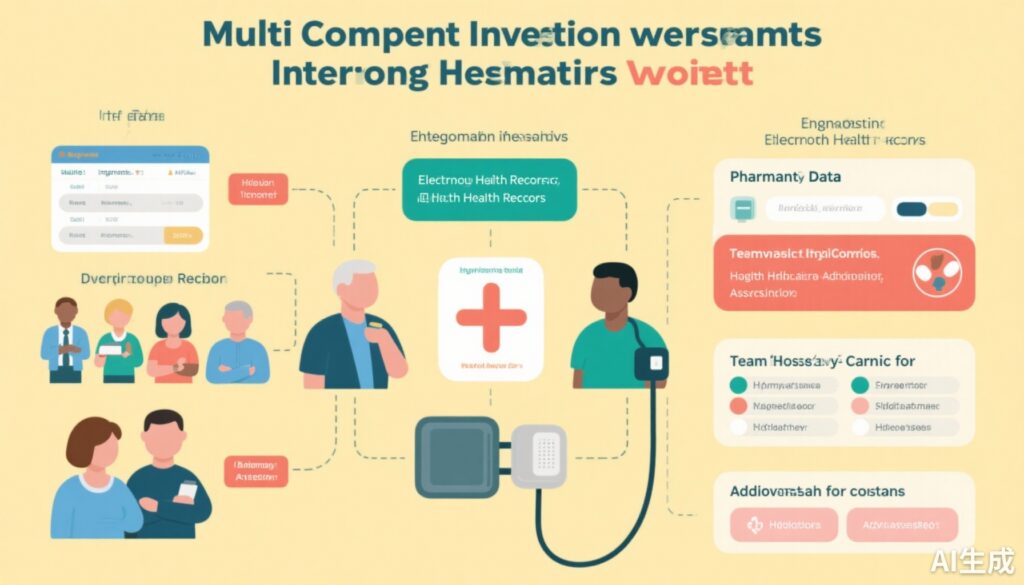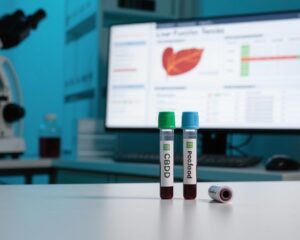Highlights
- Medication adherence remains a critical but underrecognized challenge in hypertension management, affecting approximately half of patients.
- The TEAMLET pragmatic cluster RCT employed linked electronic health record and pharmacy data combined with team-based care but did not improve adherence or blood pressure control compared to usual care.
- Pharmacist-led digital health interventions and theory-based behavioral strategies show promise in improving adherence, emphasizing personalization and patient engagement.
- Procedural approaches, such as renal denervation, offer adherence-independent alternatives but necessitate appropriate patient selection and optimization of medical therapy.
Background
Hypertension affects nearly 50% of adults worldwide and is a leading contributor to cardiovascular morbidity and mortality. Despite the availability of effective antihypertensive medications, suboptimal medication adherence is prevalent, impacting treatment effectiveness and increasing cardiovascular risk. Medication nonadherence is often underrecognized in clinical practice, creating a significant gap in hypertension control. Recent technological advances have enabled scalable linkage between electronic health records (EHR) and pharmacy dispensing data, providing innovative opportunities to assess and address adherence at the point of care. However, the clinical utility and impact of multifaceted adherence interventions in pragmatic, real-world settings remain to be fully delineated.
Key Content
TEAMLET Trial: Design and Findings
TEAMLET (Leveraging Electronic Health Record Technology and Team Care to Address Medication Adherence) was a pragmatic, two-arm cluster randomized clinical trial conducted between October 2022 and November 2024 across 10 primary care sites in New York. It enrolled 1726 adults with uncontrolled hypertension and low medication adherence (defined as a proportion of days covered [PDC]<80%). The intervention integrated (1) automated identification of nonadherent patients using linked EHR-pharmacy data at the visit; (2) prompts for medical assistants to screen for adherence barriers; (3) clinical decision support alerts to primary care physicians and nurse practitioners highlighting adherence barriers; and (4) facilitated adherence discussions between clinicians and patients. Usual care served as the comparator.
Baseline mean PDC was approximately 33%, increasing to about 51% in the intervention group and 53% in the control group at 12-month follow-up. Importantly, there was no statistically significant difference between groups in the absolute change in PDC (adjusted difference -0.15 percentage points; 95% CI, -4.06 to 3.76). Systolic blood pressure changes and rates of patients achieving ≥80% adherence were also similar, indicating the intervention did not improve medication adherence or blood pressure control.
These findings underscore the complexity of medication adherence, suggesting that identification and clinician prompts alone may be insufficient to overcome multifactorial adherence barriers in hypertension management.
Complementary Evidence: Digital Health and Behavioral Approaches
Systematic reviews of pharmacist-led digital health interventions (telephone, web, mobile-based) report significant improvements in medication adherence and reductions in blood pressure (J Multidiscip Healthc. 2025;14:5275-5287). Success factors include intervention frequency, personalization, and patient engagement. Analogously, theory-based behavioral interventions employing Social Cognitive Theory or Transtheoretical Model have demonstrated efficacy in enhancing adherence in primary care and community settings, although methodological heterogeneity and risk of bias remain challenges (J Prev Med Public Health. 2025;58(4):348-359).
These studies advocate for tailored, patient-centered strategies that address individual barriers beyond mere identification, incorporating motivational and educational components.
Alternative and Adjunctive Strategies: Procedural and Fixed-Dose Combinations
Renal denervation (RDN), an FDA-approved interventional therapy, lowers blood pressure independent of medication adherence and shows safety and efficacy in patients across hypertension severity spectrums (Nat Rev Cardiol. 2025;22(9):664-674; Am J Hypertens. 2025). While appropriate patient selection and optimization of medical regimens remain essential, RDN offers a promising adjunct for patients with true resistant hypertension or suboptimal adherence.
Fixed-dose combination (FDC) therapies, such as rosuvastatin plus clopidogrel, have demonstrated high adherence rates (95.5%) and favorable perceived efficacy and tolerability in real-world settings, suggesting simplification of regimens may improve adherence (Cureus. 2025;17(8):e89471).
Real-World Adherence Patterns and Sociodemographic Influences
Analysis of adherence in pragmatic trials involving older adults demonstrated a 30% nonadherence rate (medication possession ratio <80%), with lower adherence observed in Black patients, urban residents, and those with comorbidities (J Clin Med. 2025;14(16):5695). These data highlight the need to address social determinants of health and tailor interventions regionally and demographically.
Expert Commentary
The TEAMLET trial provides pivotal evidence that automated identification of hypertensive medication nonadherence paired with team-based care and clinical decision support does not necessarily translate into improved adherence or blood pressure control. This may reflect the multifaceted, dynamic nature of adherence, which encompasses behavioral, social, economic, and systemic factors not fully addressed by the intervention.
Comparatively, digital health technologies and behavioral theories offer more personalized frameworks, yet their efficacy hinges on sustained patient engagement and resource-intensive support, which may limit scalability in diverse settings. Importantly, real-world data underscore inequities in adherence related to race, socioeconomic status, and health complexity, necessitating tailored approaches.
Mechanistically, adherence facilitators involve addressing forgetfulness, medication side effects, health literacy, and psychosocial stressors. Hence, interventions must combine technological identification with in-depth patient-centered counseling, motivational enhancement, and structural support.
From a translational perspective, incorporation of fixed-dose combination regimens and novel procedural therapies like renal denervation provide alternative paradigms potentially circumventing adherence challenges. Nonetheless, these approaches require careful patient selection, shared decision-making, and robust health system integration.
Guidelines continue to emphasize the primacy of optimizing adherence through multifaceted interventions before advancing to procedural adjuncts. The heterogeneity of adherence barriers mandates flexibility and integration across clinical, behavioral, and technological domains.
Conclusion
Medication nonadherence remains a formidable barrier to optimal hypertension control despite advances in technology and care models. The TEAMLET trial’s finding of no improvement in adherence or blood pressure with a linked EHR-pharmacy data and team-based care intervention underscores the complexity of adherence behaviors.
Emerging evidence supports the incorporation of personalized digital health interventions, behavioral theory-driven frameworks, and regimen simplification to enhance adherence. Adjunctive procedural therapies like renal denervation offer options independent of adherence but require appropriate clinical use.
Future research should focus on integrating mechanistically informed, personalized adherence interventions with considerations of social determinants and health system capabilities, alongside evaluation of cost-effectiveness and long-term outcomes to optimize hypertension management globally.
References
- Blecker S, et al. Medication Adherence in Hypertension: A Cluster Randomized Clinical Trial. JAMA Cardiol. 2025;10(9):914-921. PMID: 40632527.
- Bhatt DL, et al. Renal denervation for hypertension. Nat Rev Cardiol. 2025;22(9):664-674. PMID: 39743561.
- Chan A, et al. Pharmacist-Led Digital Health Interventions to Improve Treatment Outcomes in Patients with Hypertension – A Systematic Review. J Multidiscip Healthc. 2025;18:5275-5287. PMID: 40900718.
- Sreenivasan S, et al. Effectiveness of Pharmacist-Led Intervention on Medication Adherence in Chronic Diseases: A Systematic Review of Randomized Controlled Trials. Patient Prefer Adherence. 2025;19:2161-2178. PMID: 40726768.
- Blecker S, et al. Medication Adherence in the Real World: Lessons from the Diuretic Comparison Project. J Clin Med. 2025;14(16):5695. PMID: 40869531.
- Kakati D, et al. A Cost-Effective Treatment Approach Using Rosuvastatin+Clopidogrel Fixed Dose Combination (FDC) to Enhance Adherence: A Retrospective, Non-comparative, Real-World Indian Study. Cureus. 2025;17(8):e89471. PMID: 40918833.


